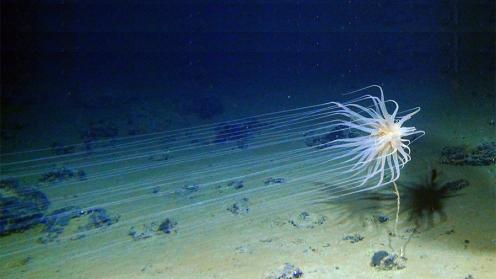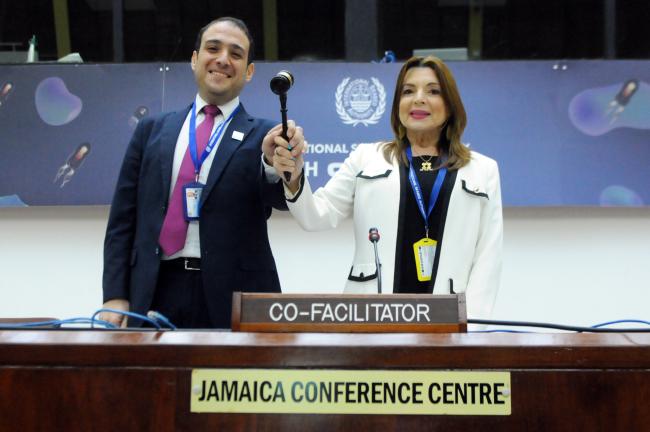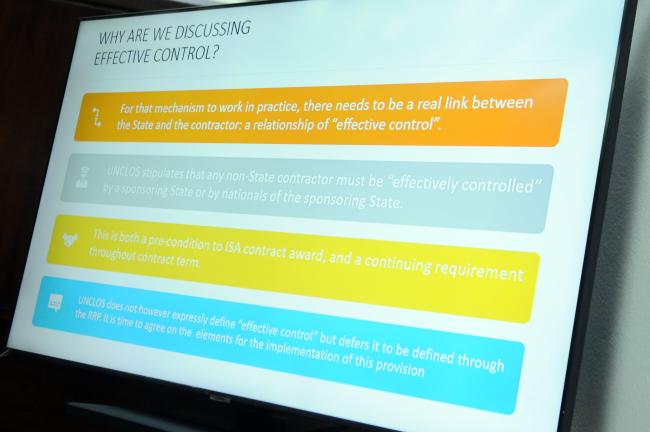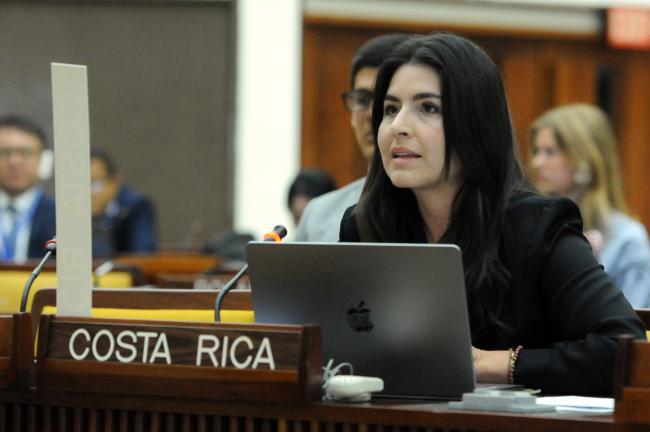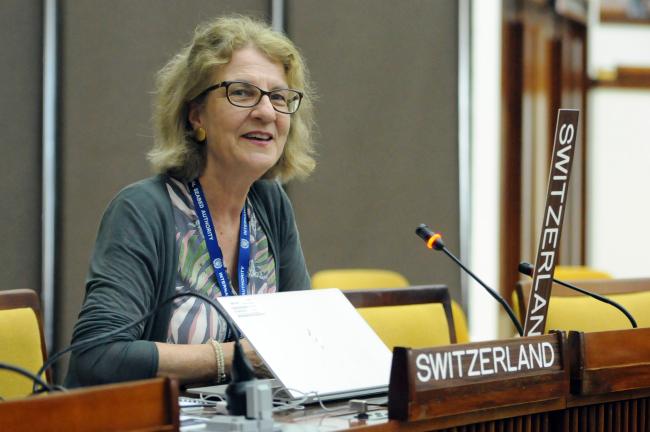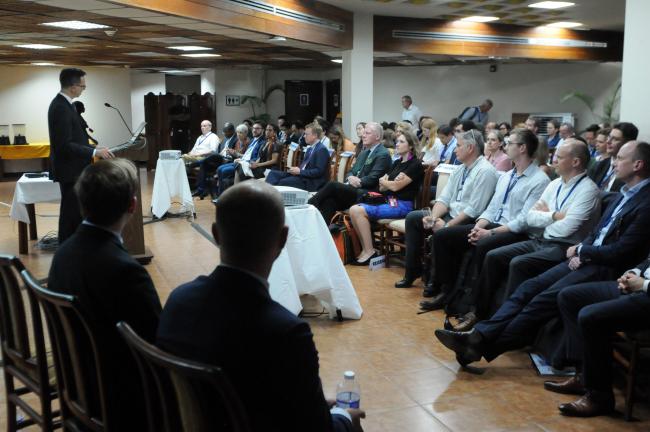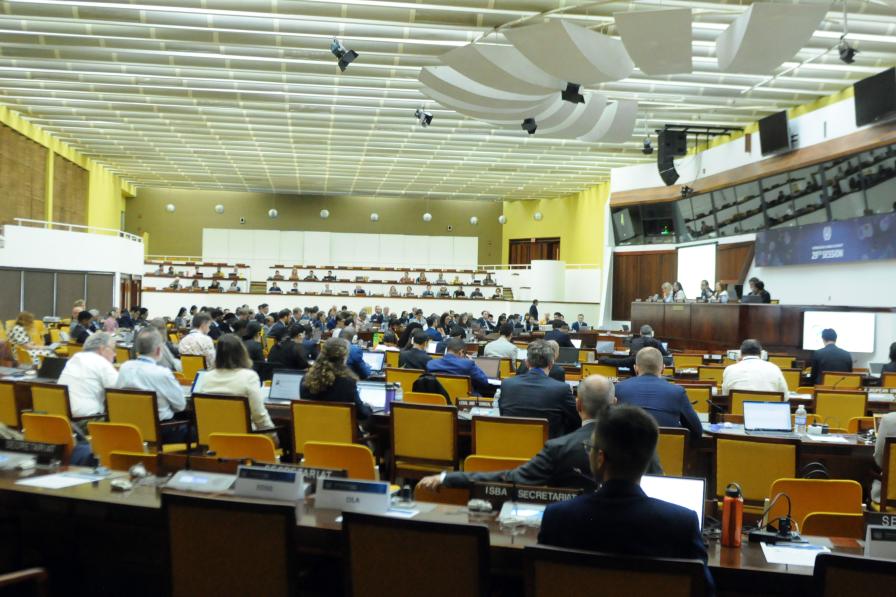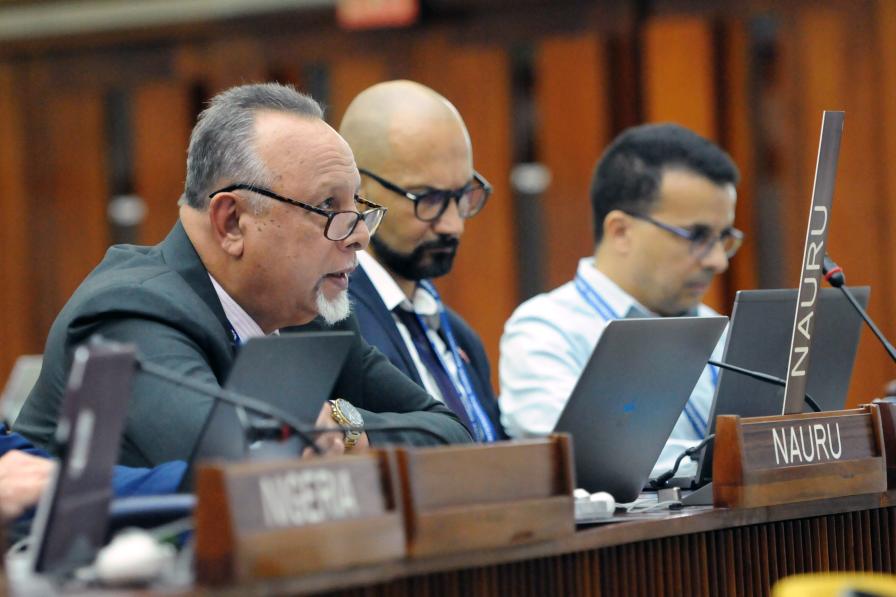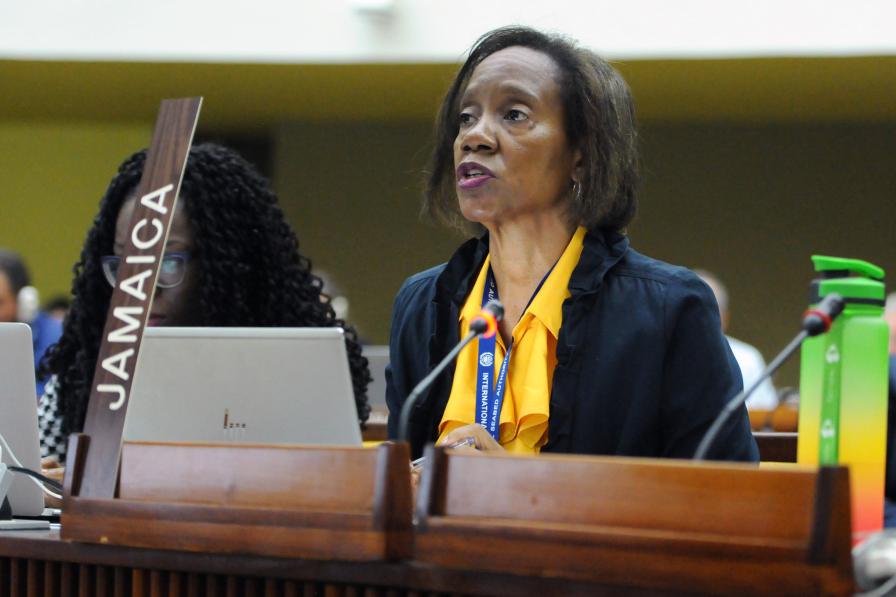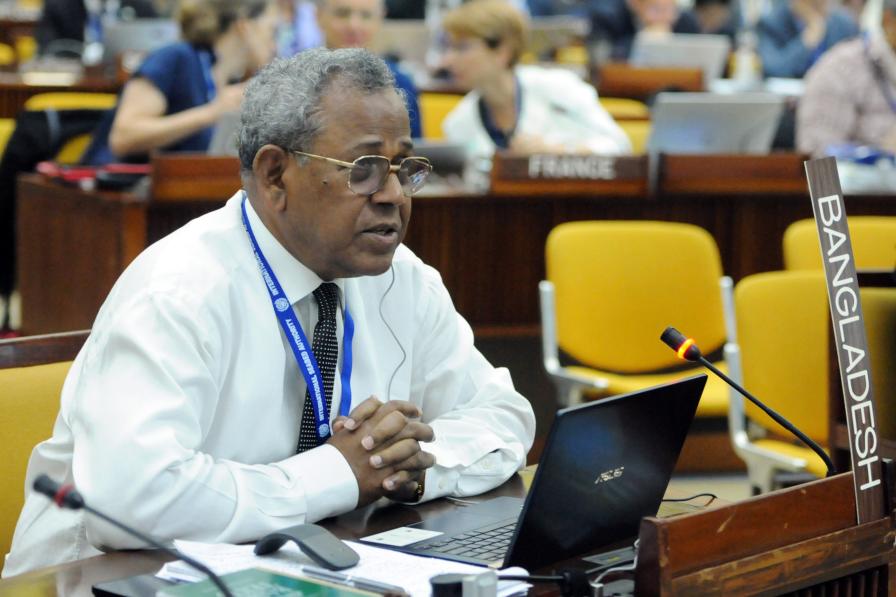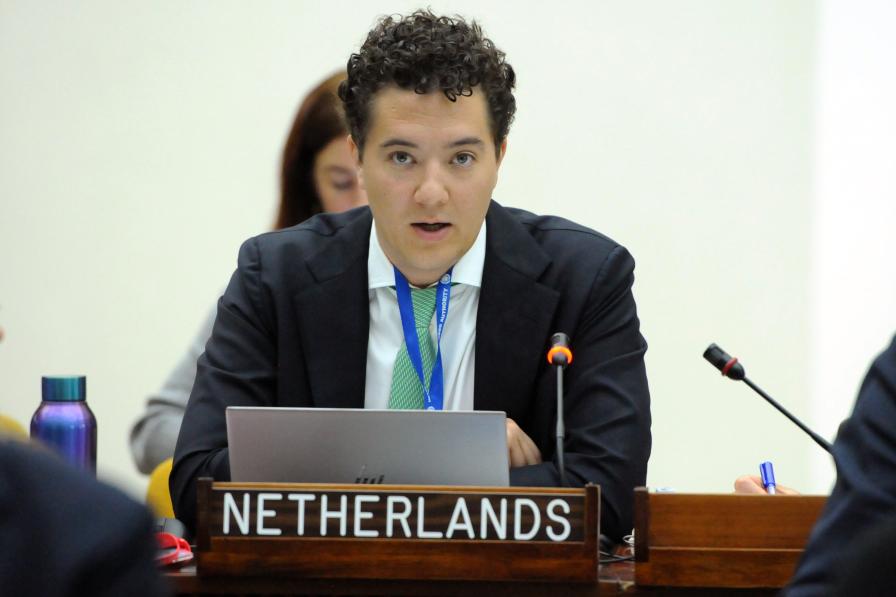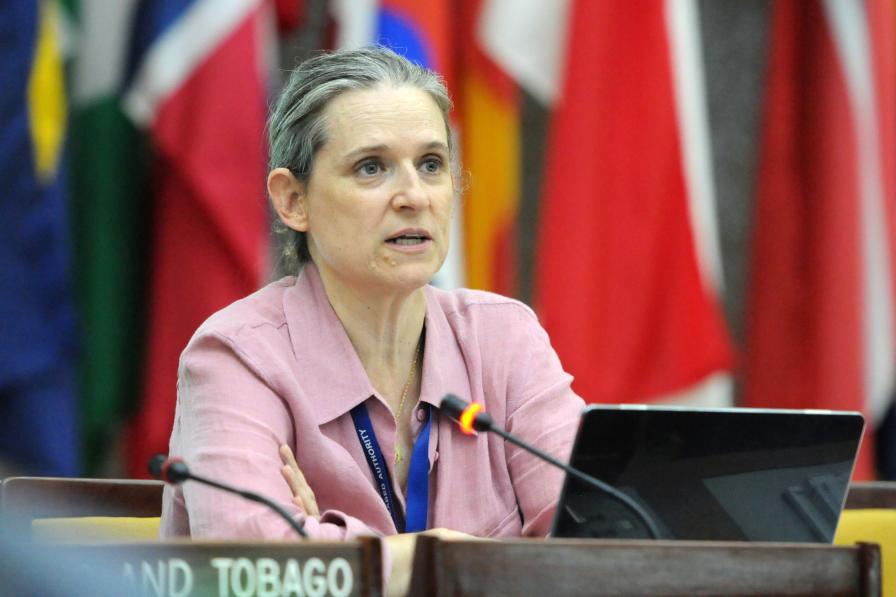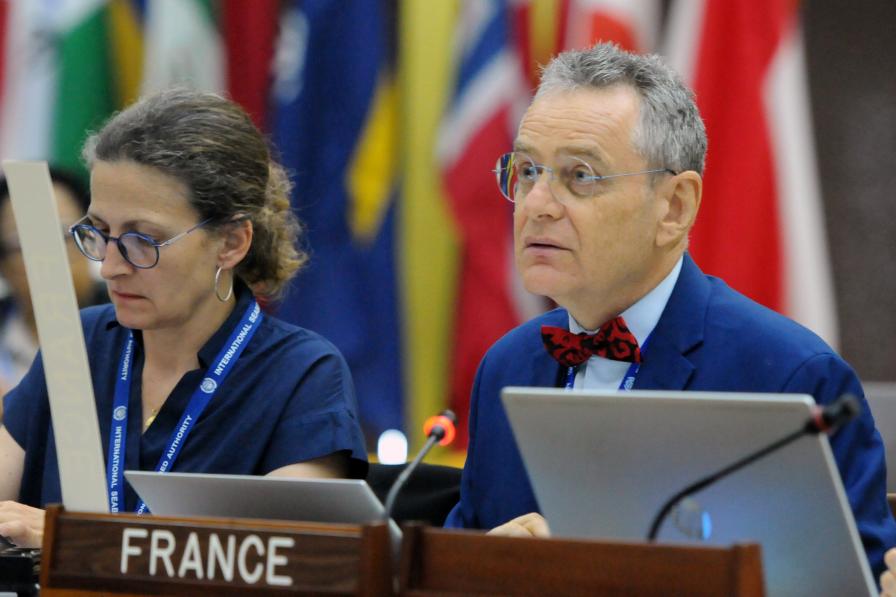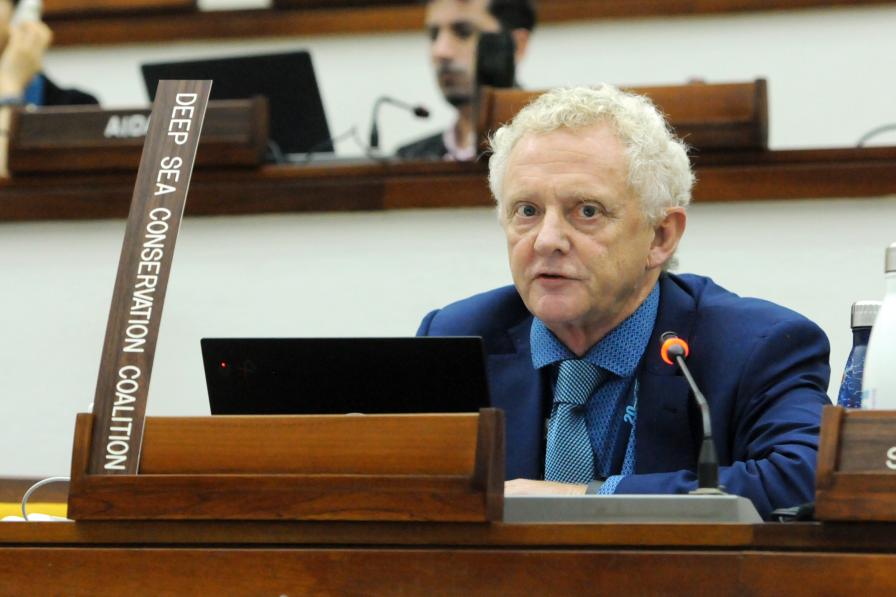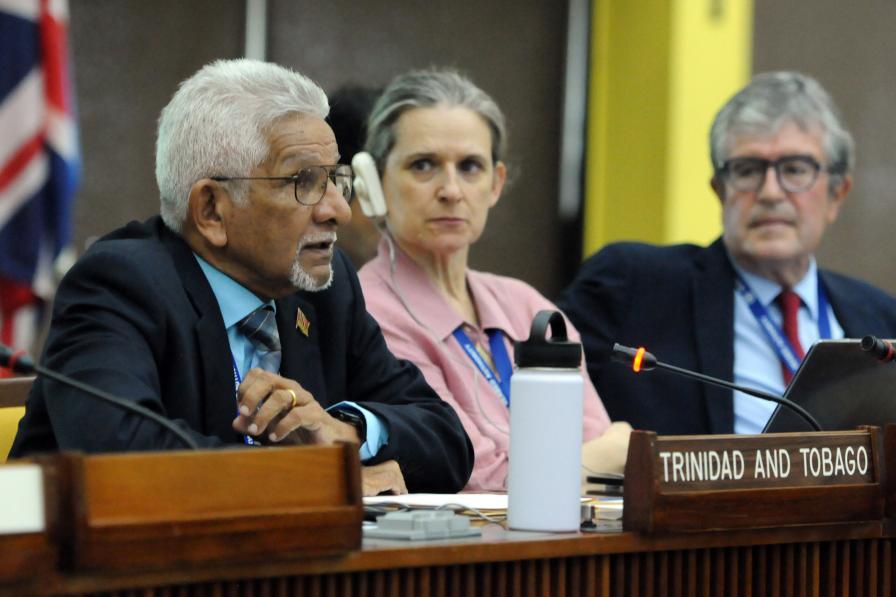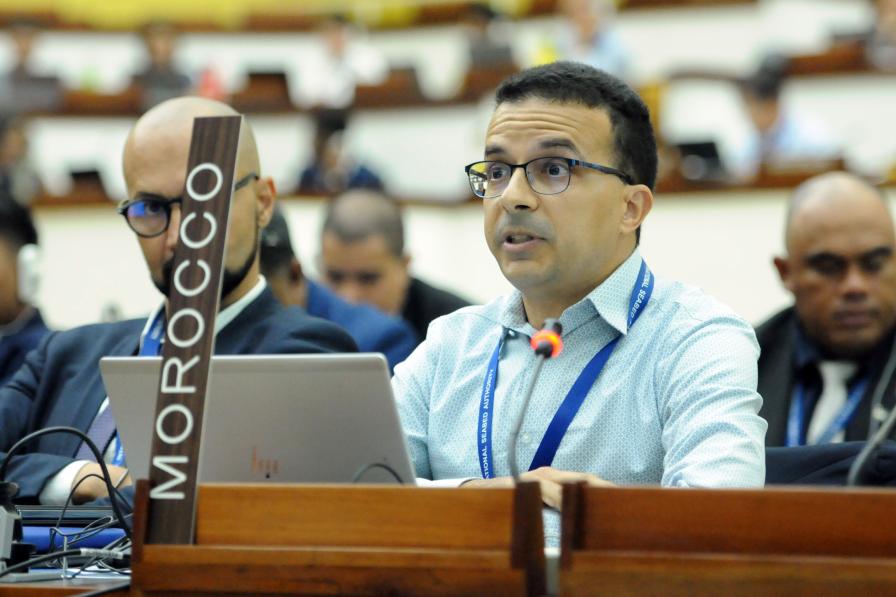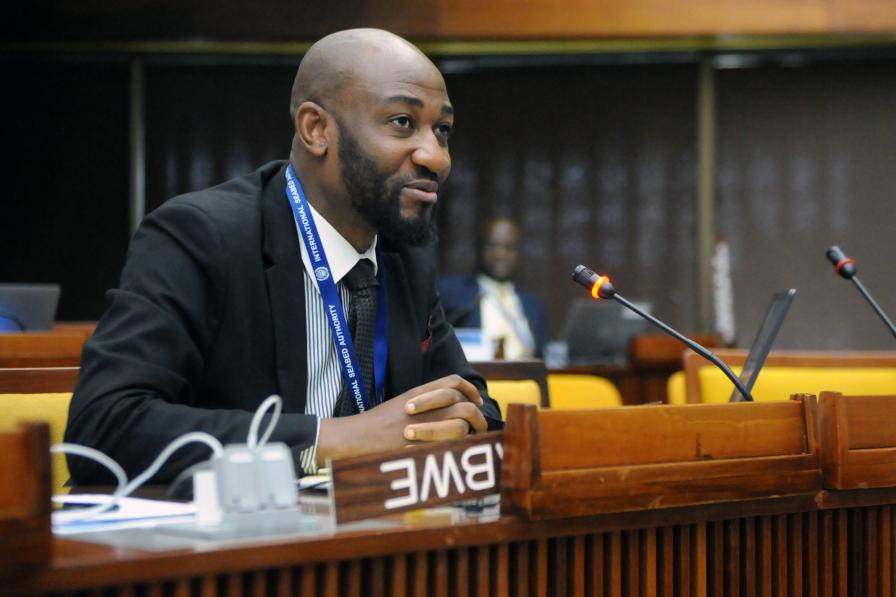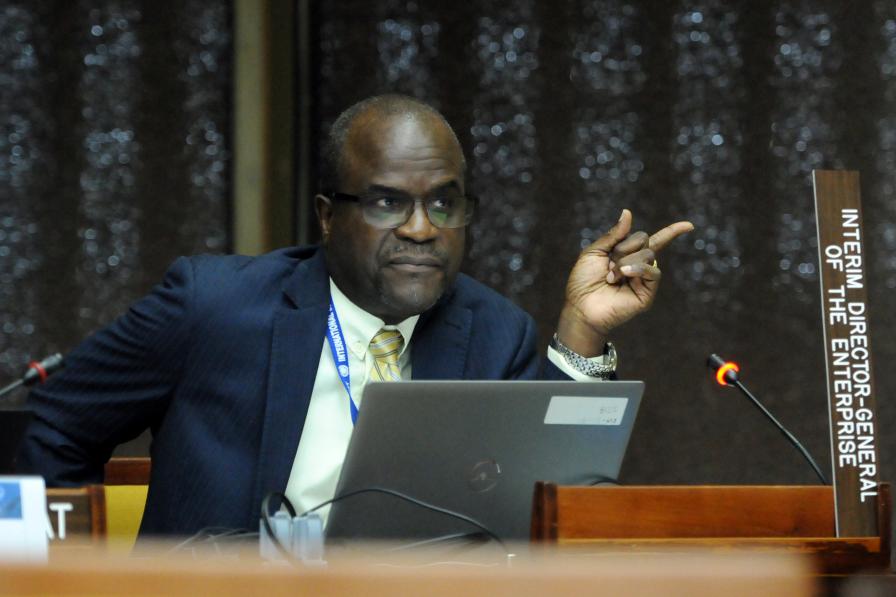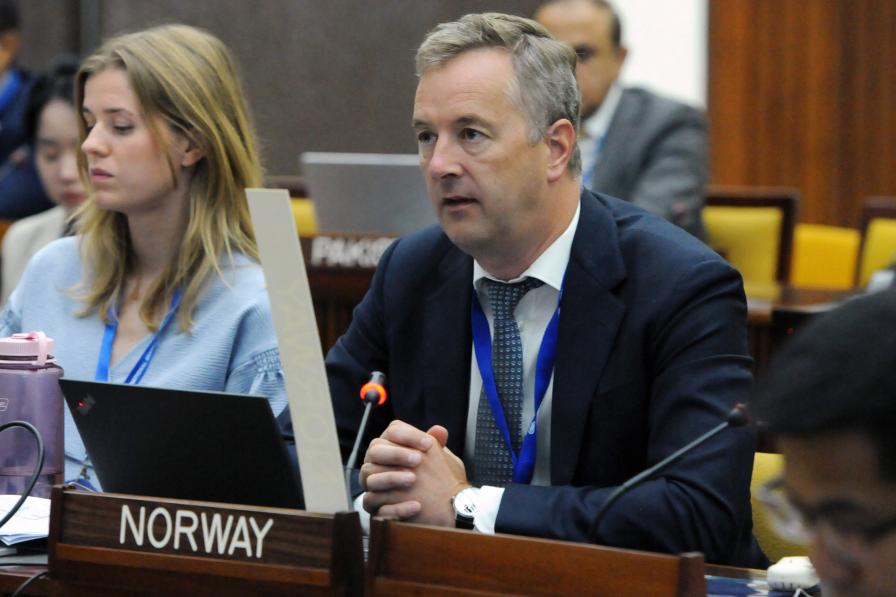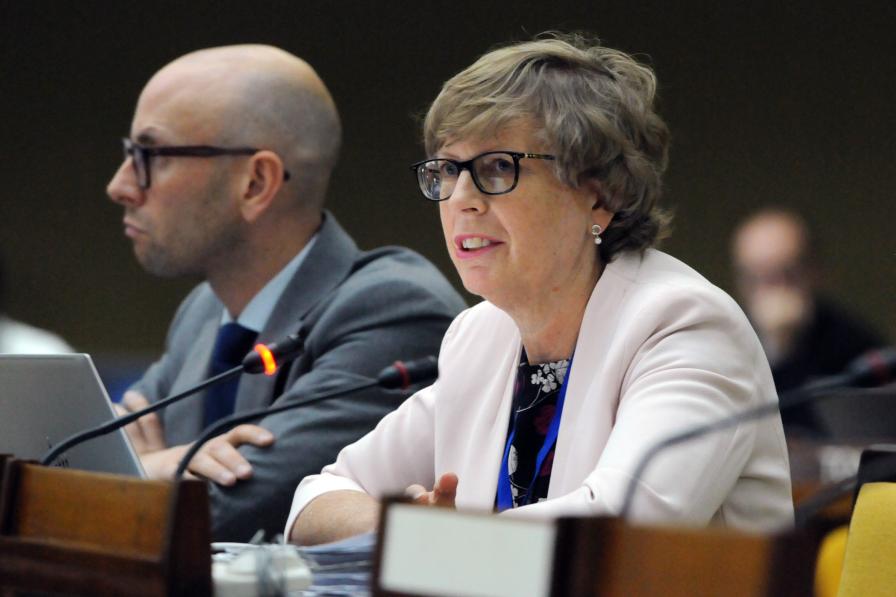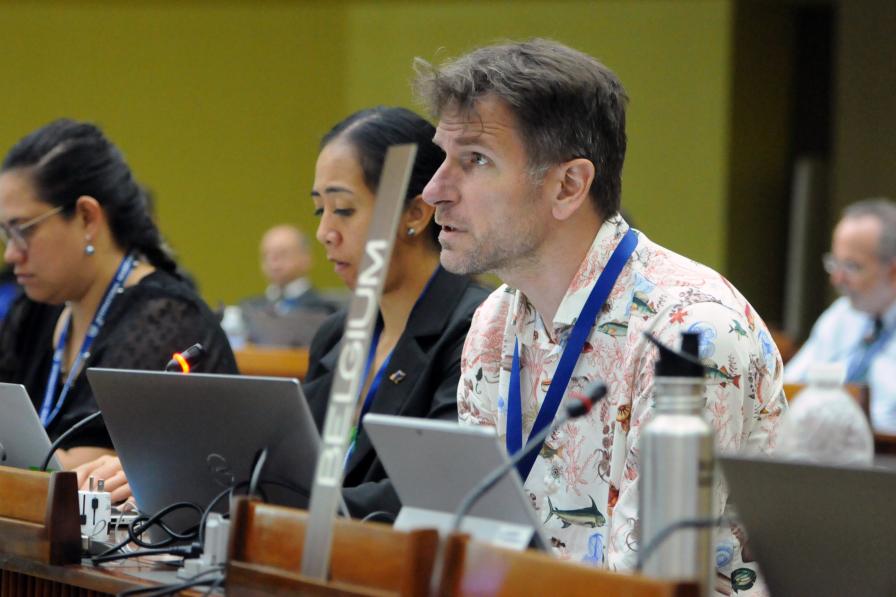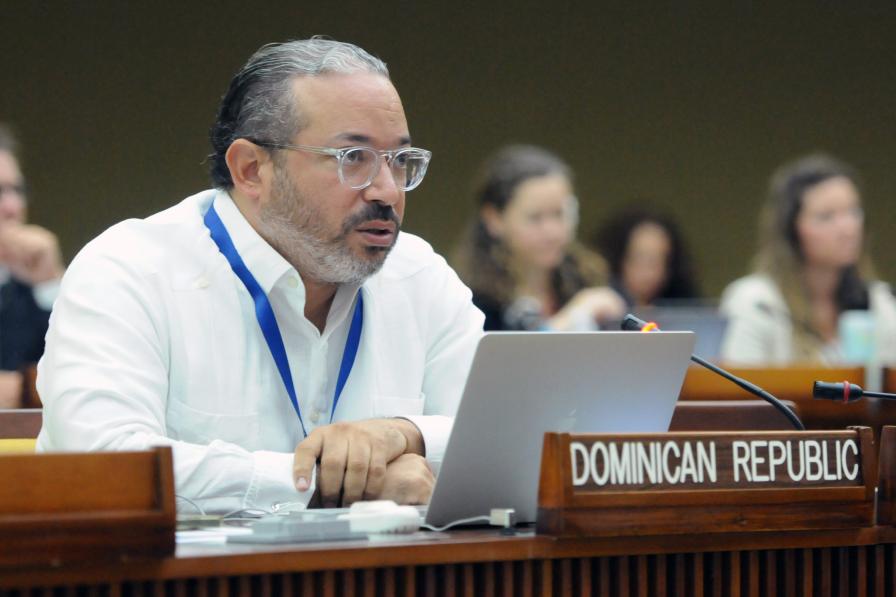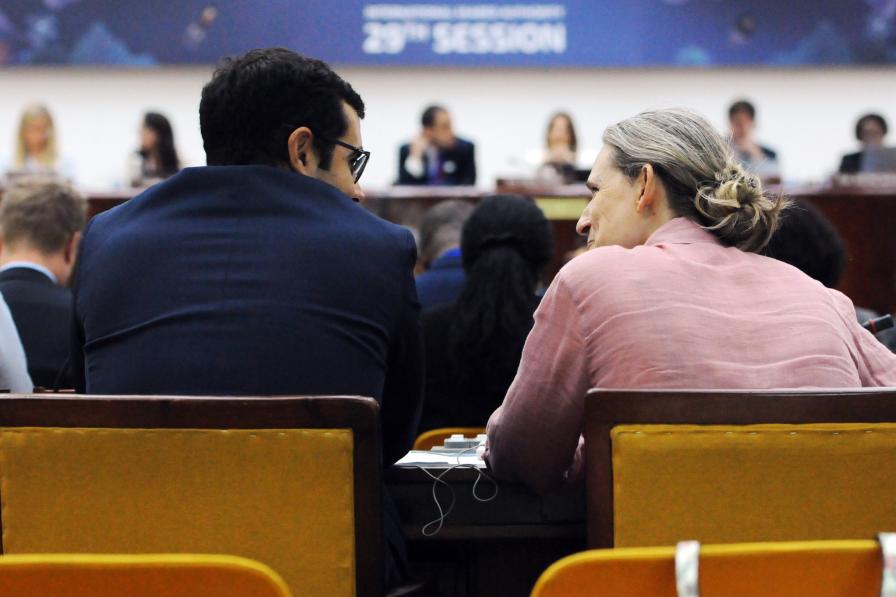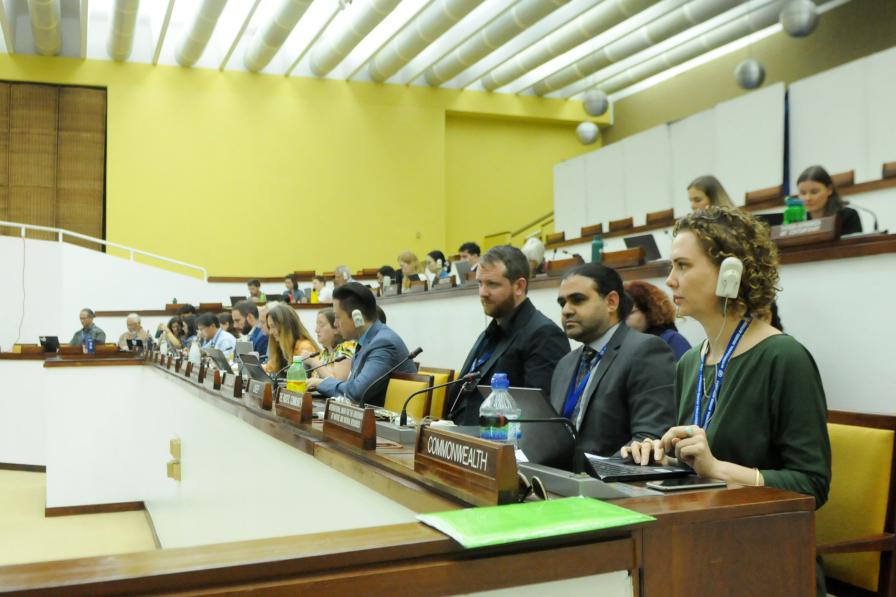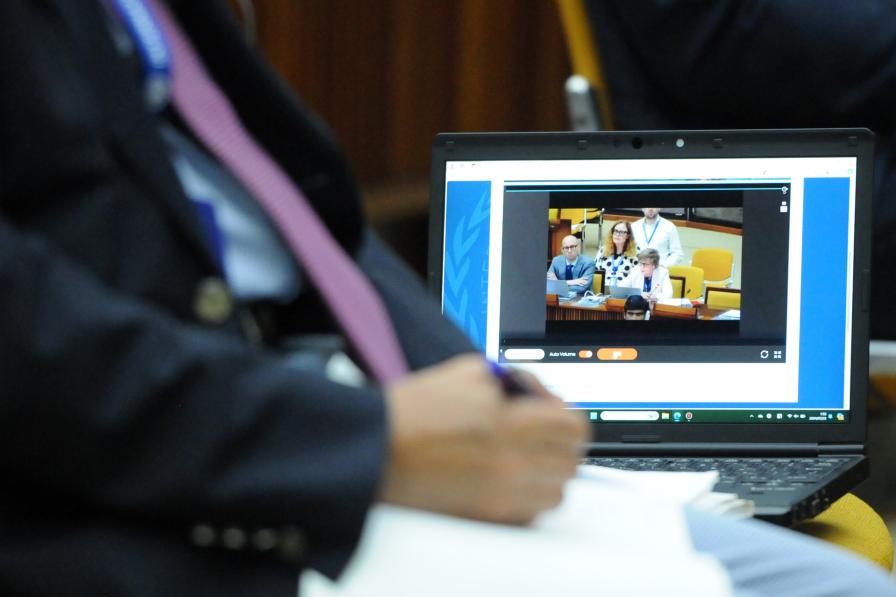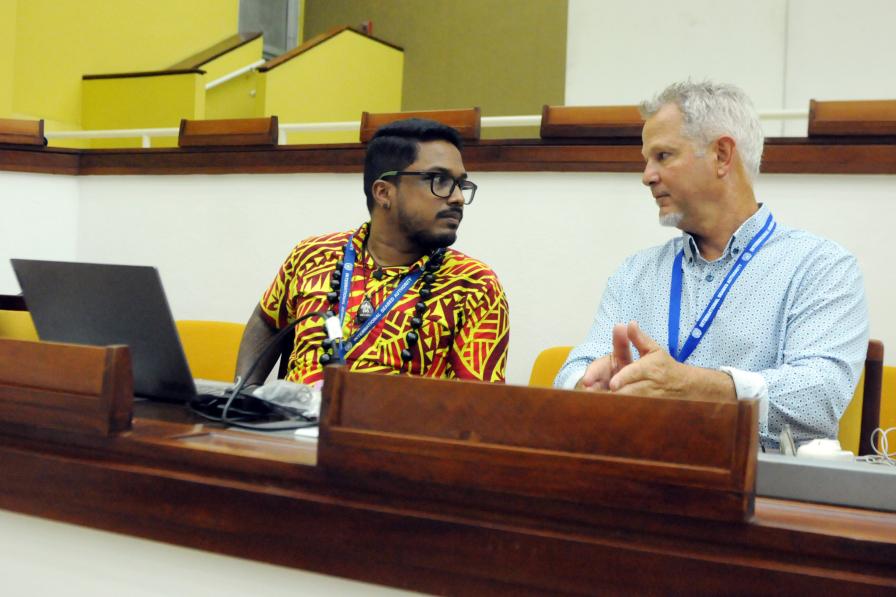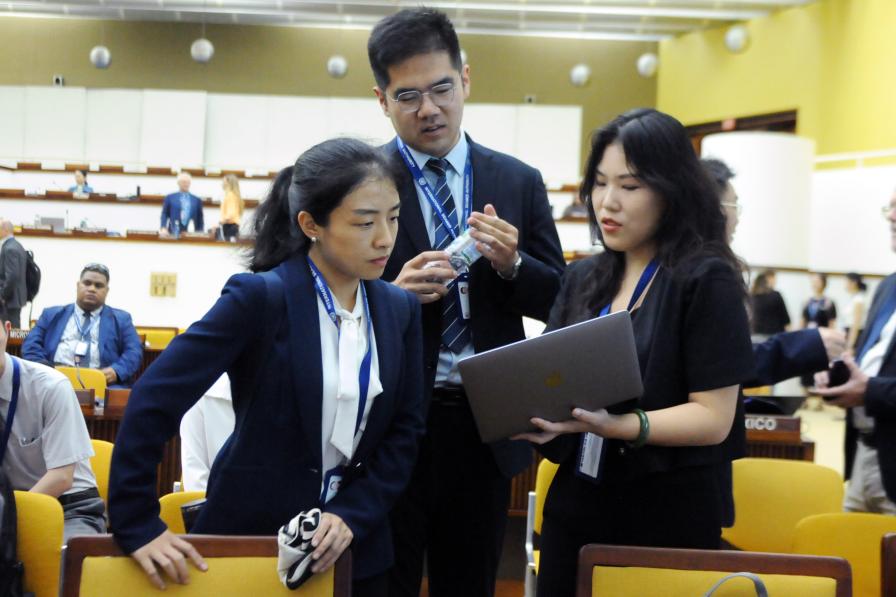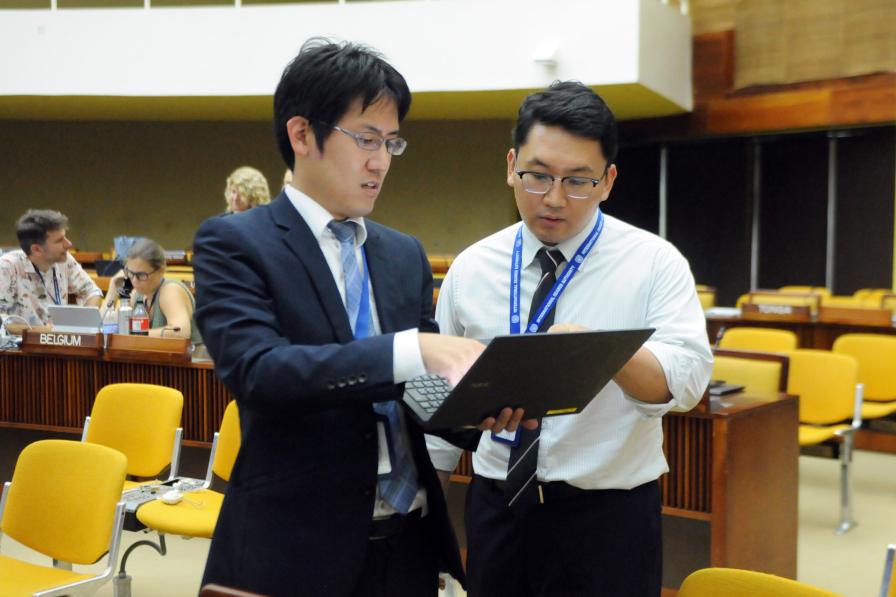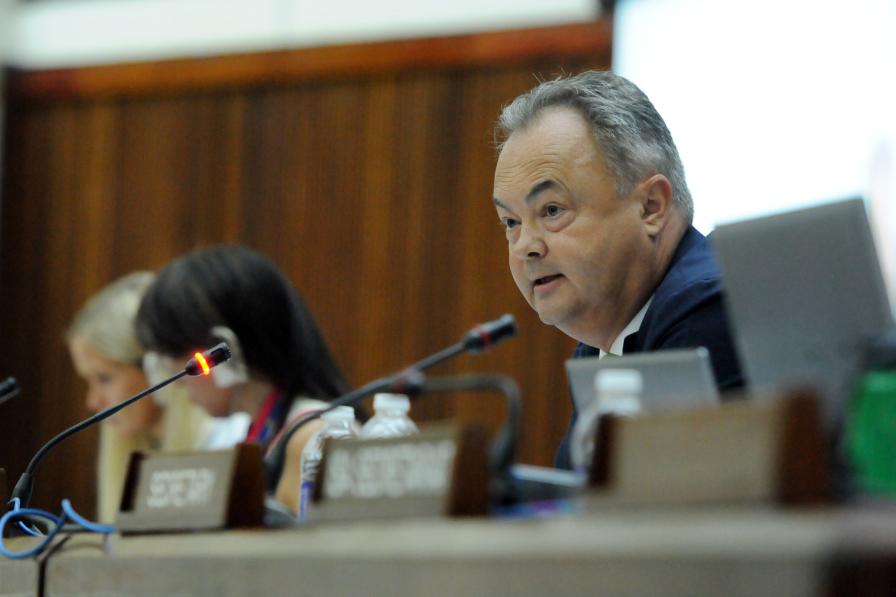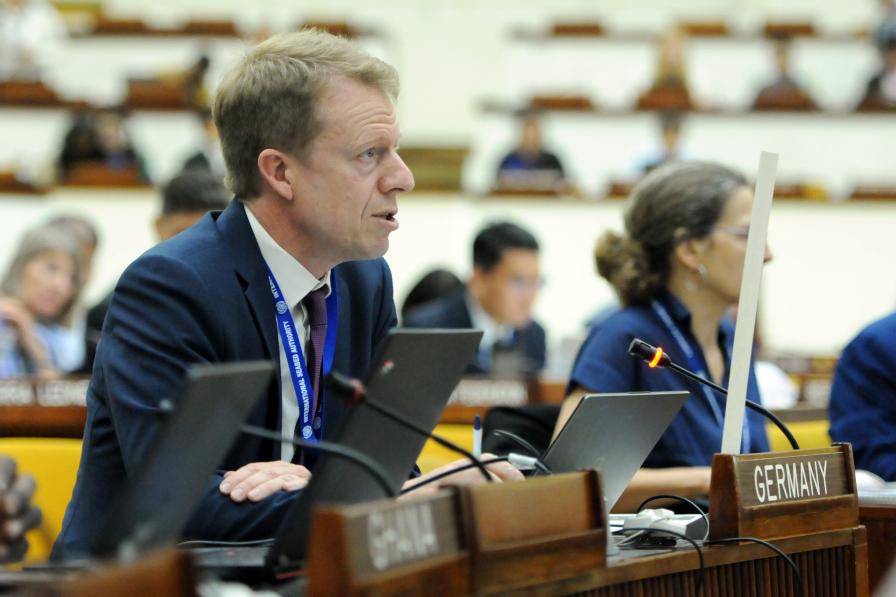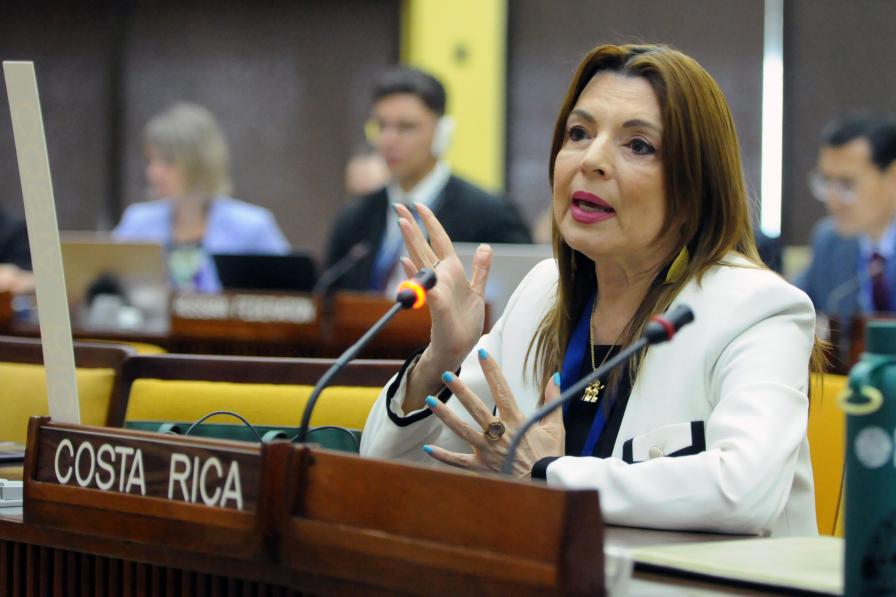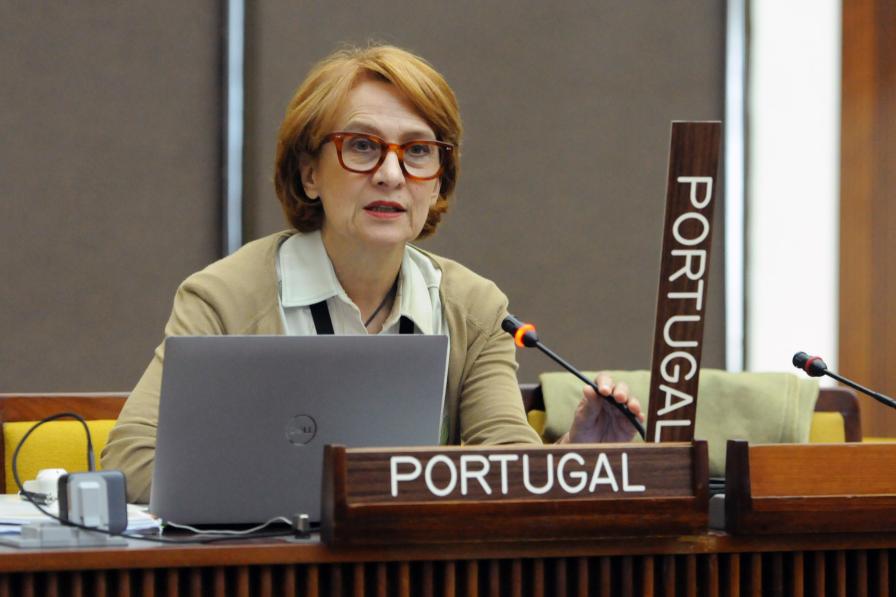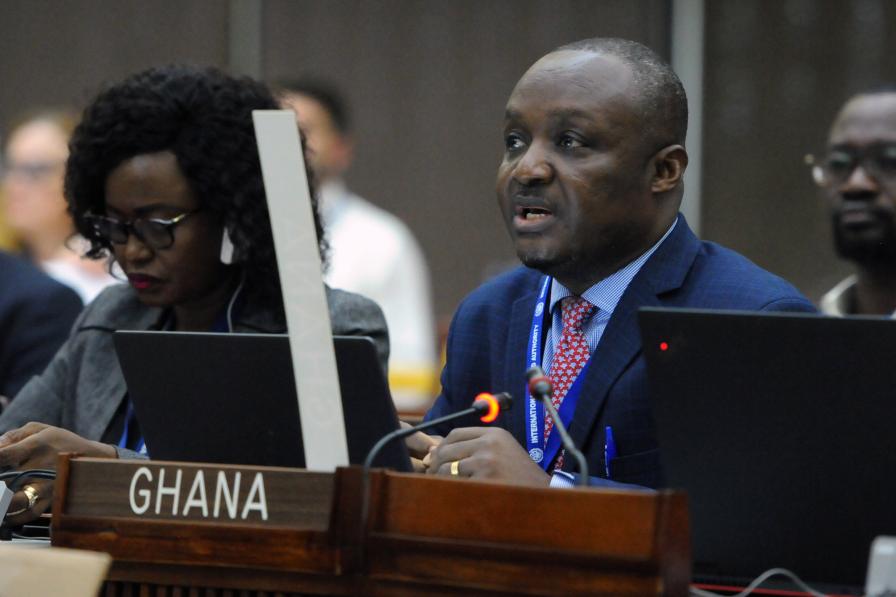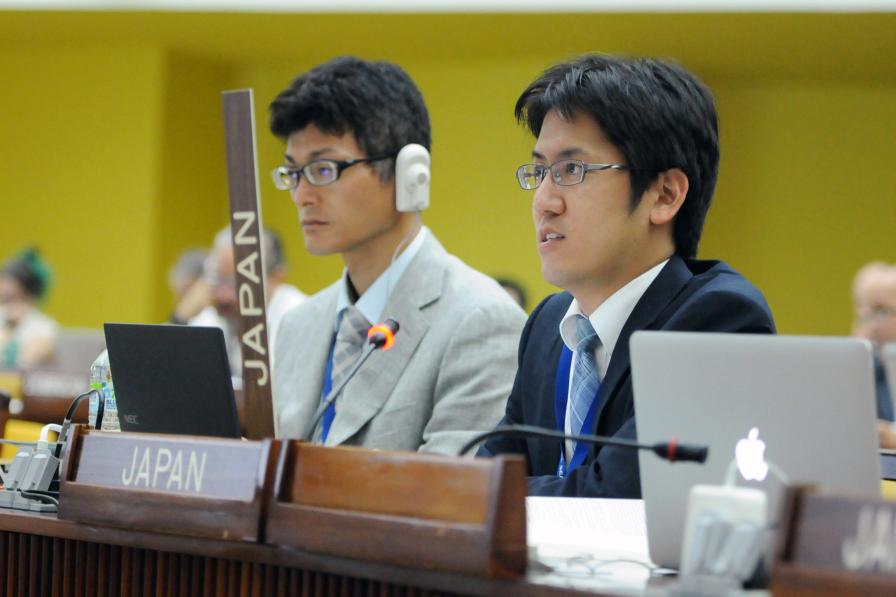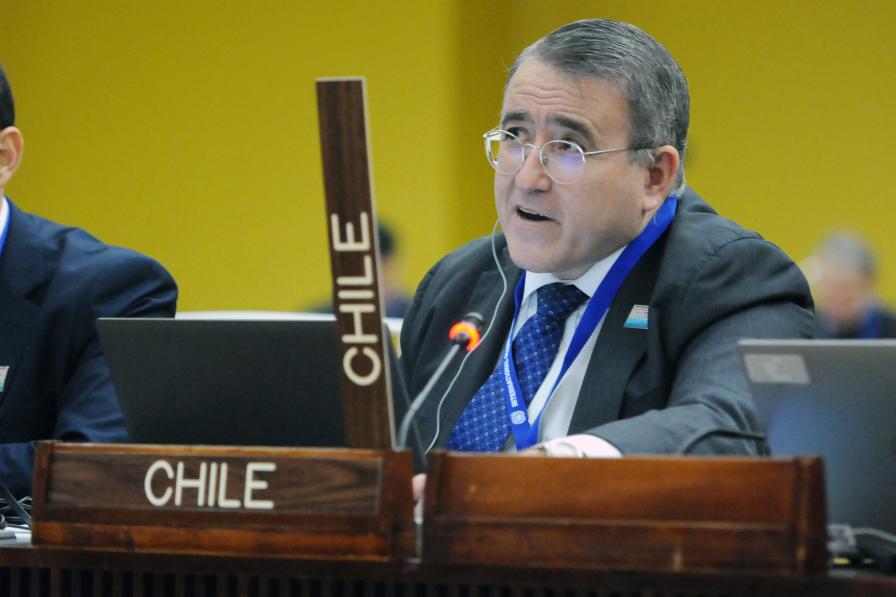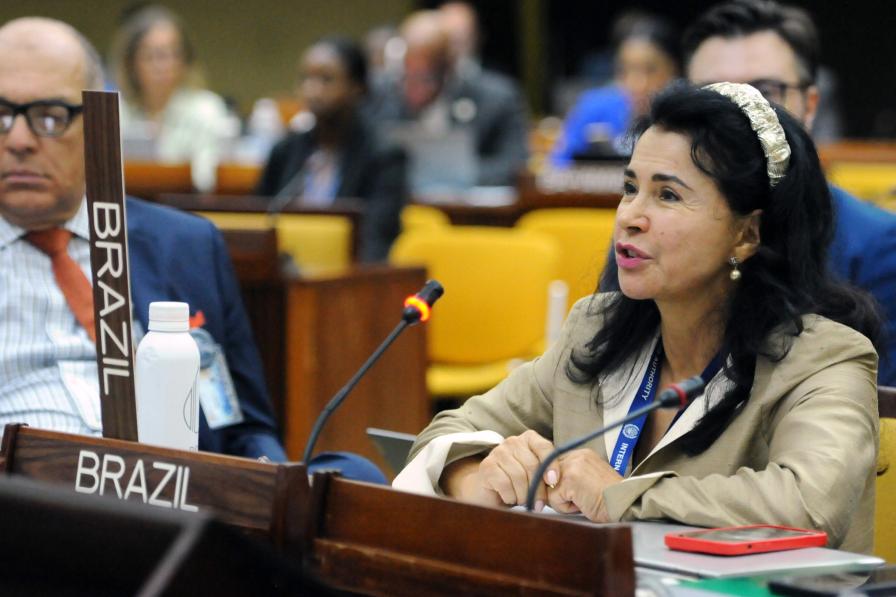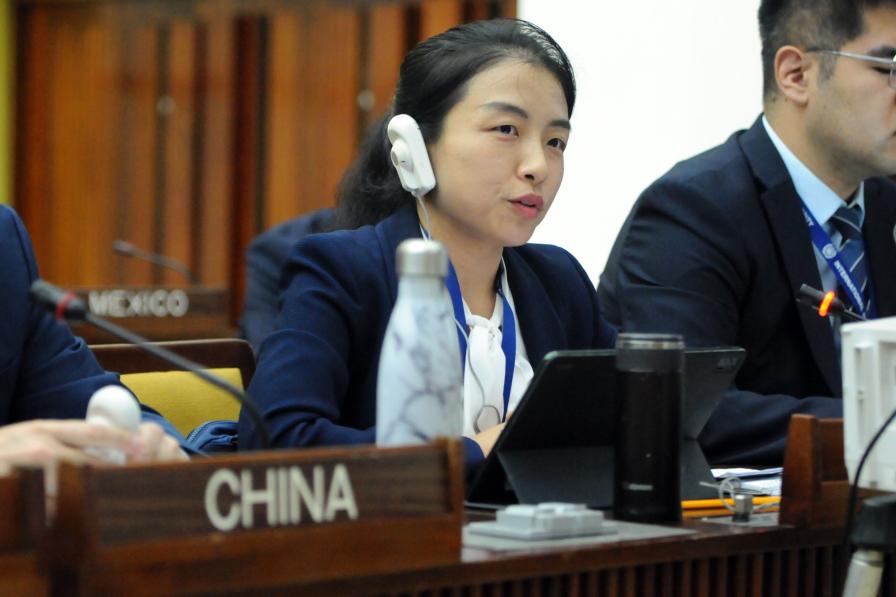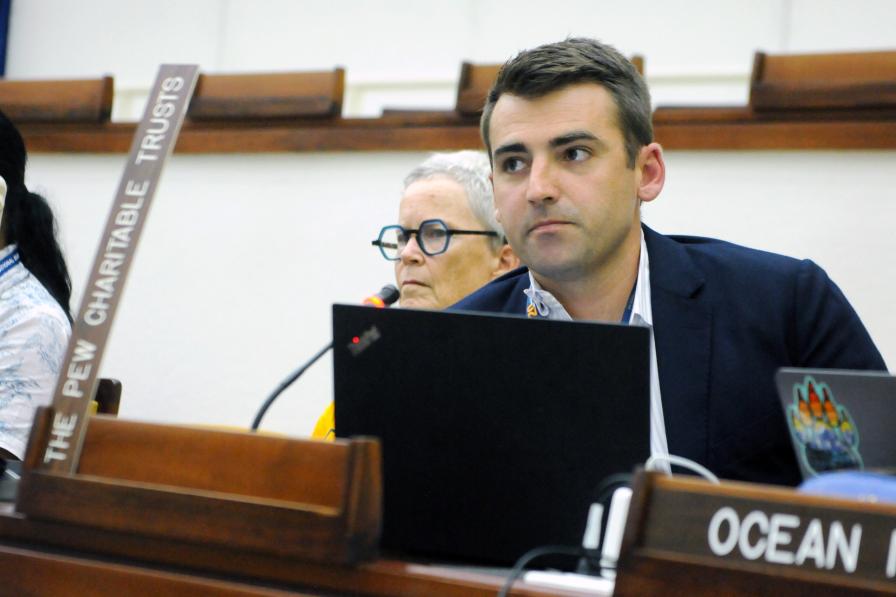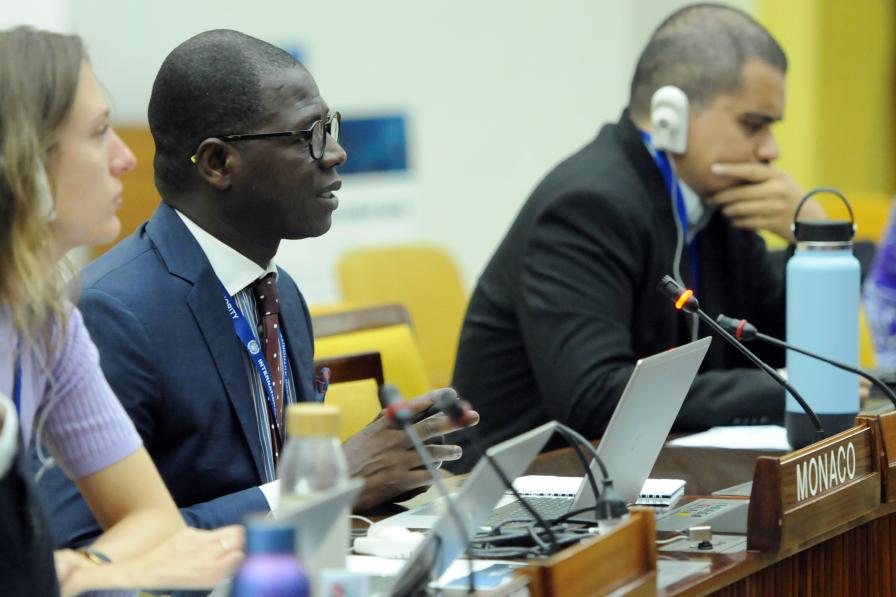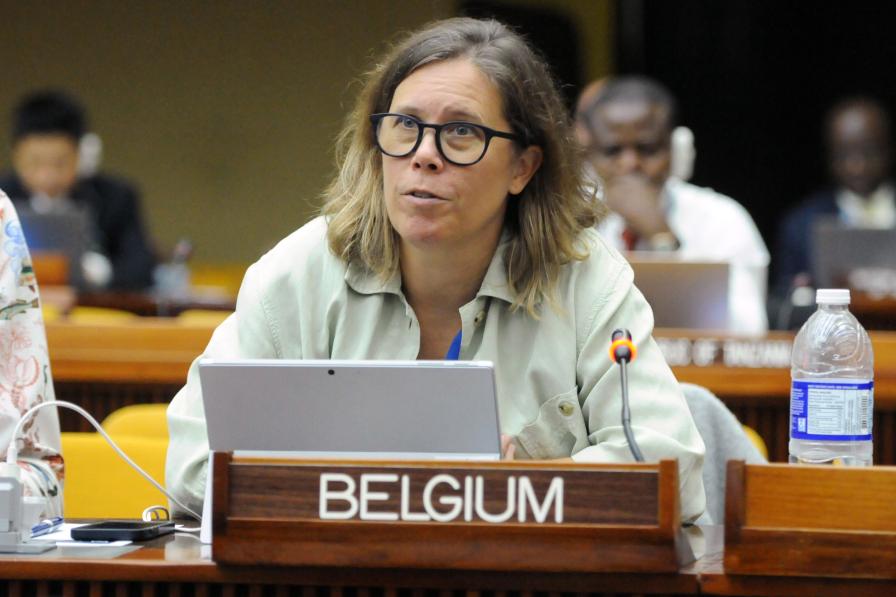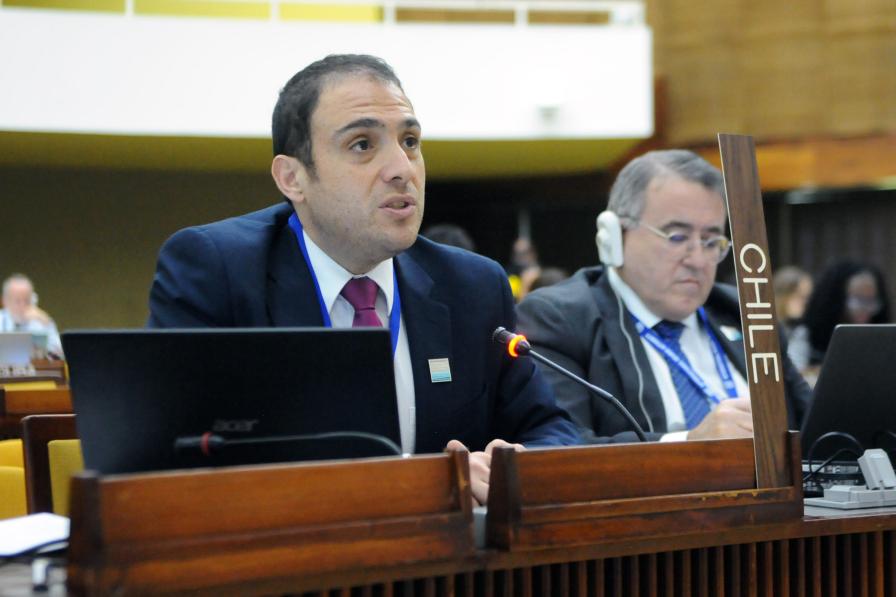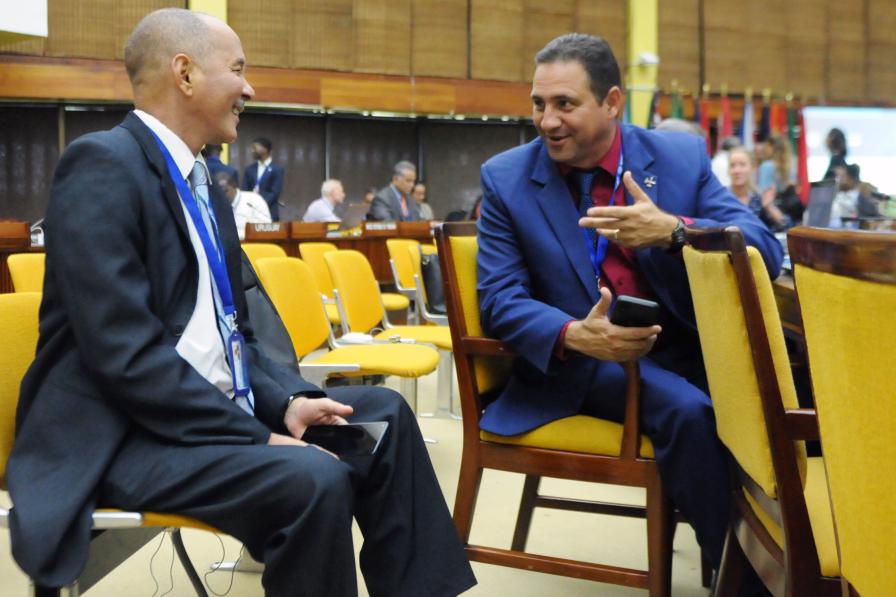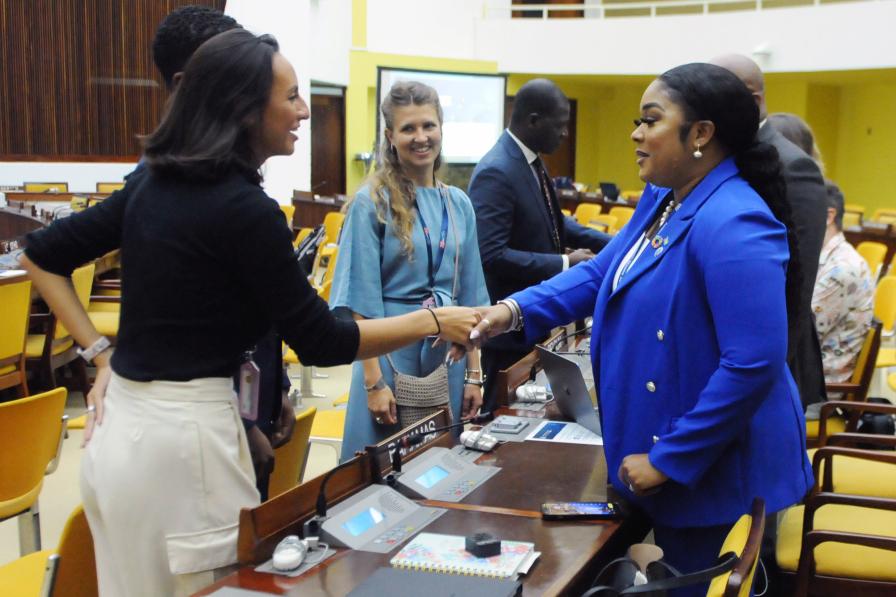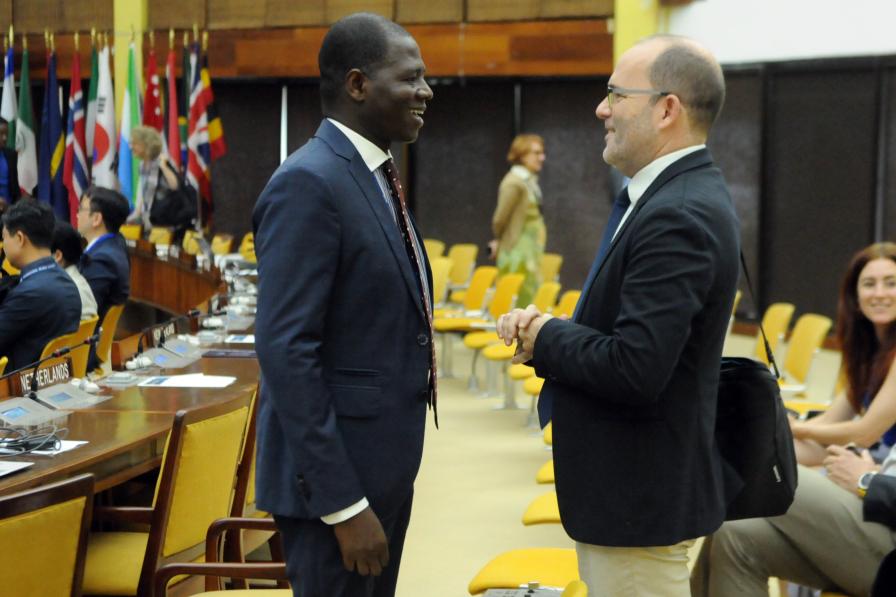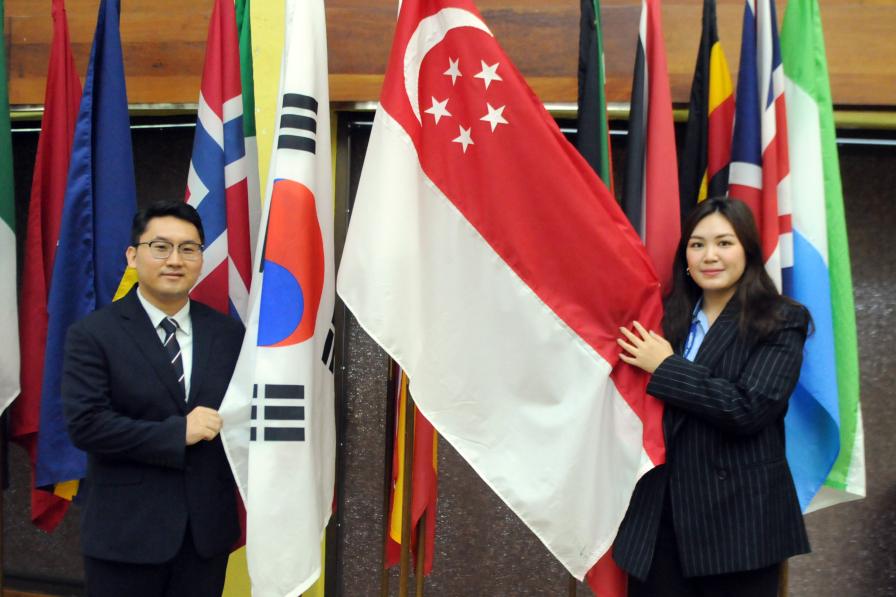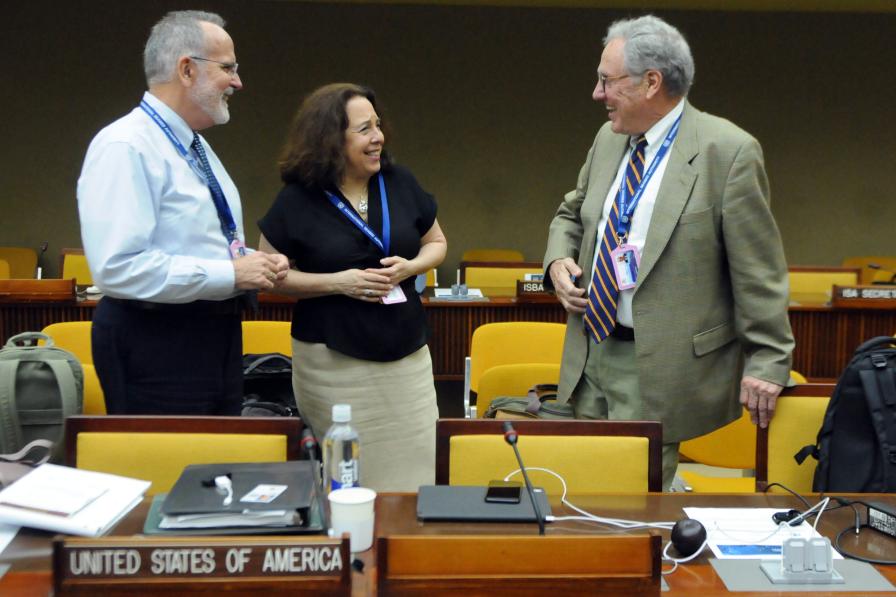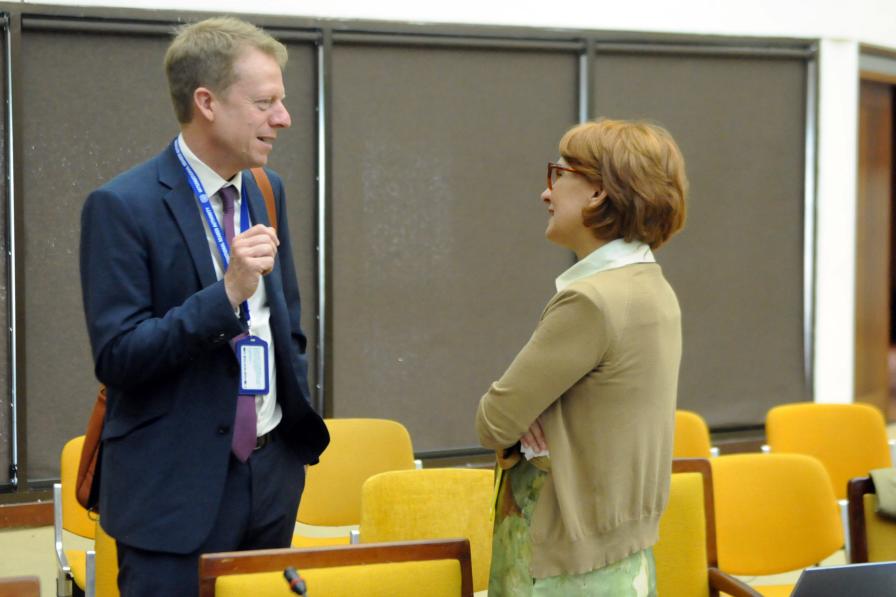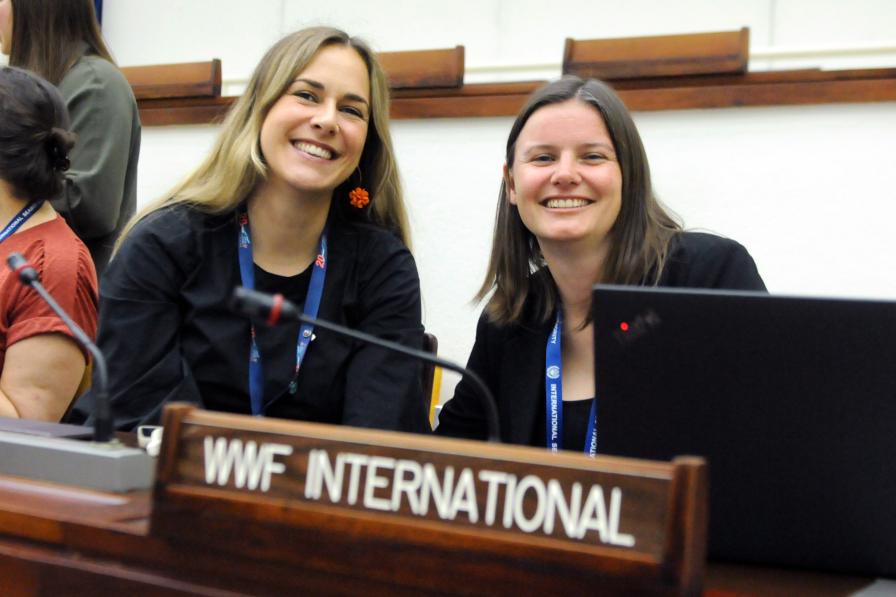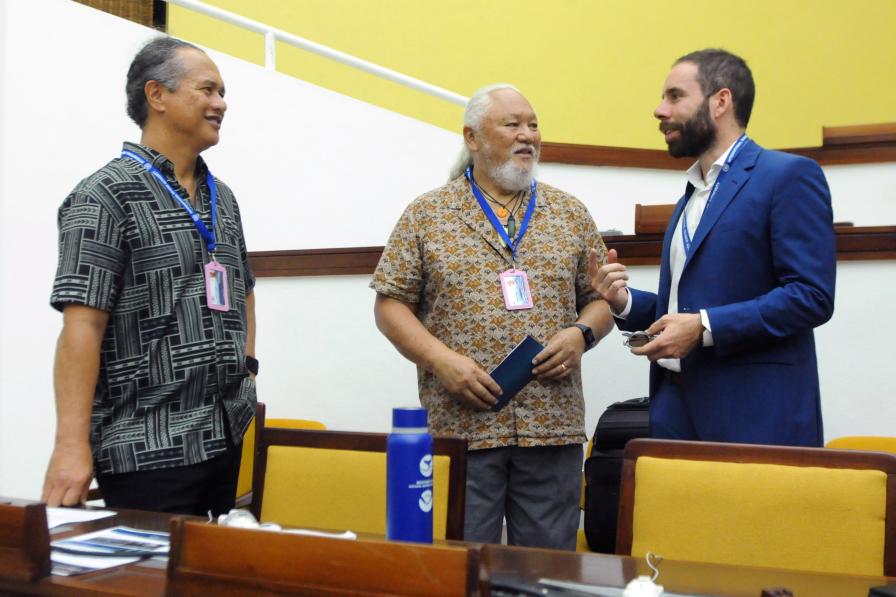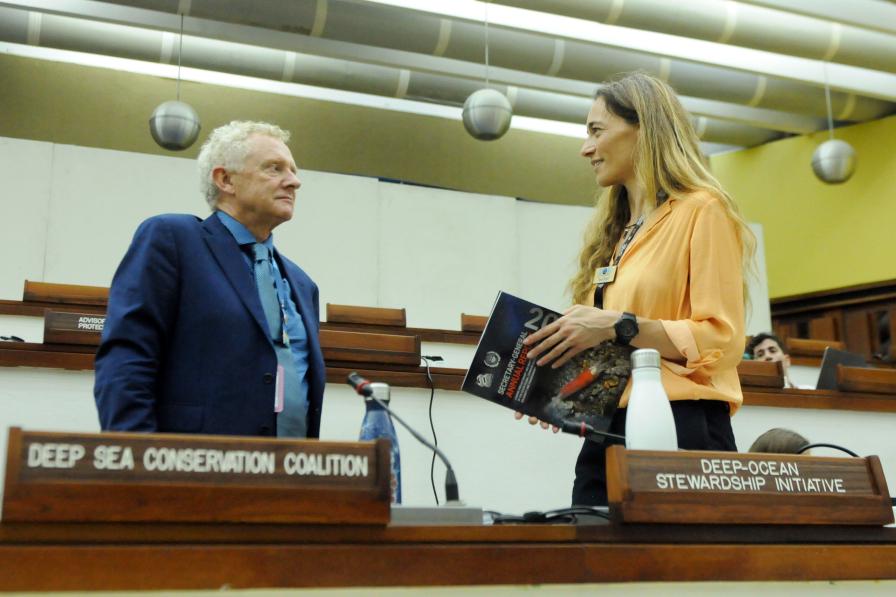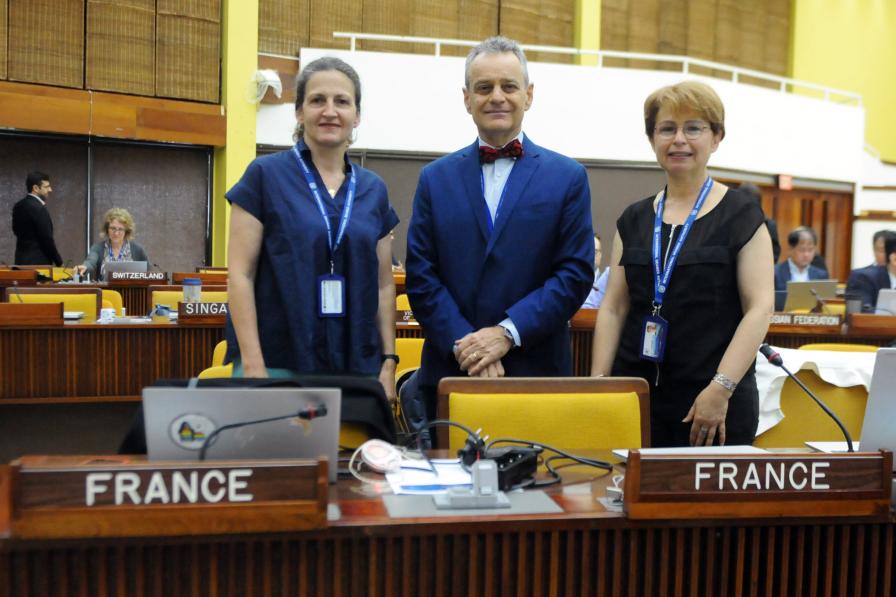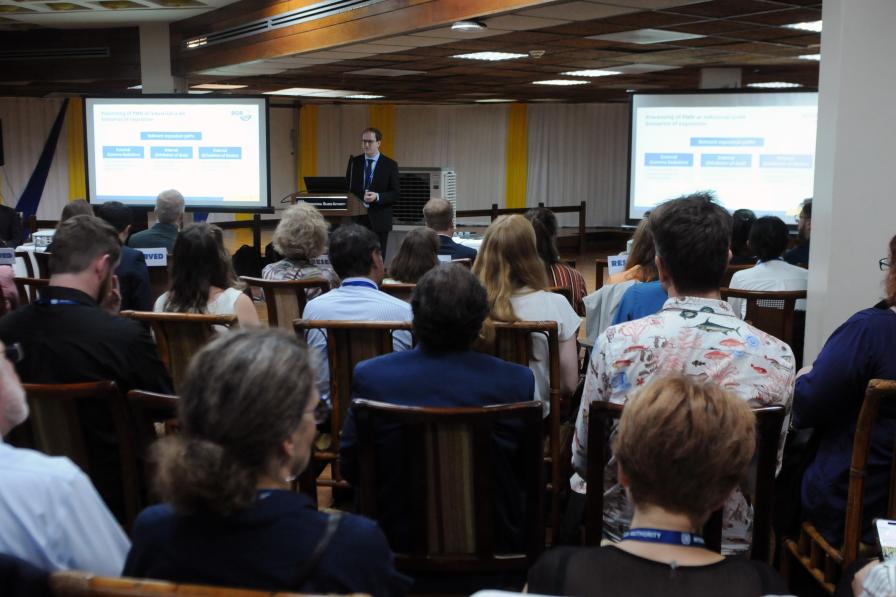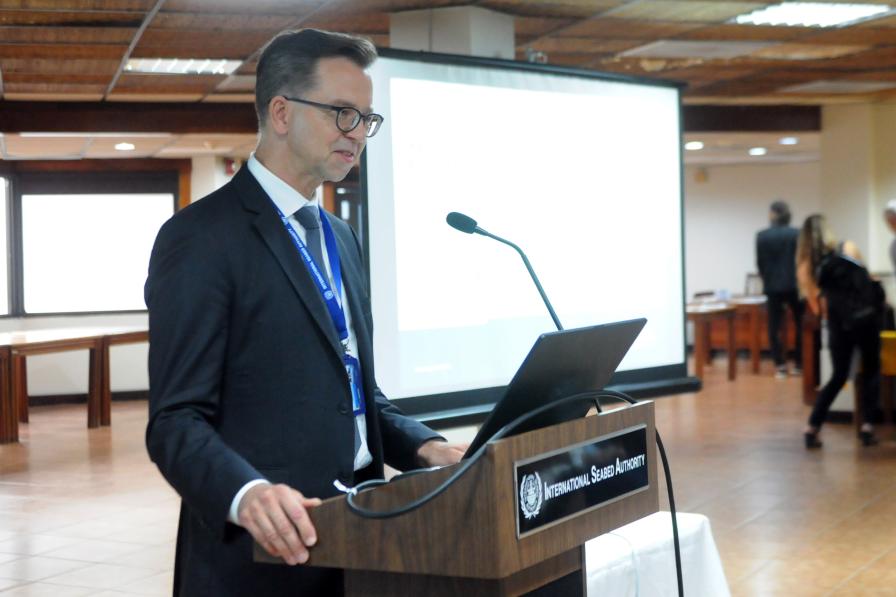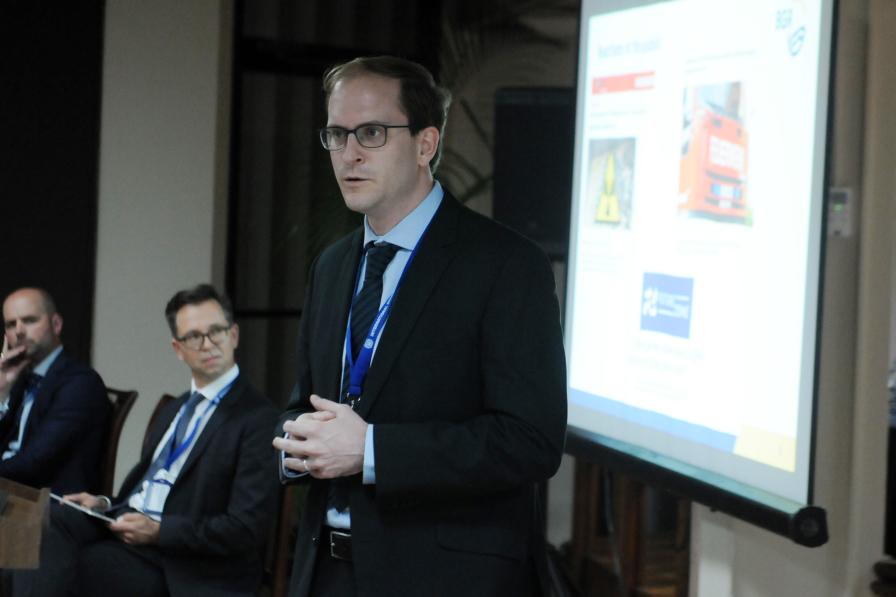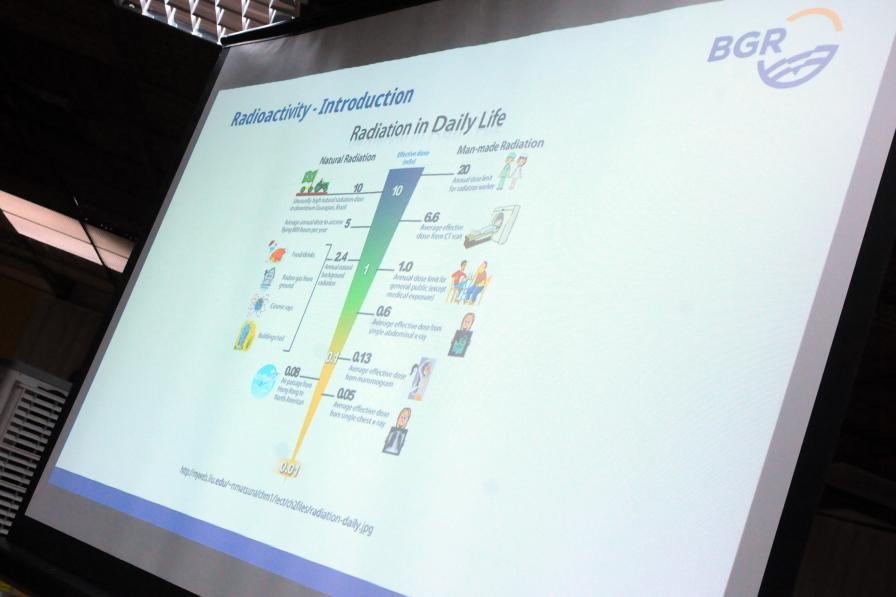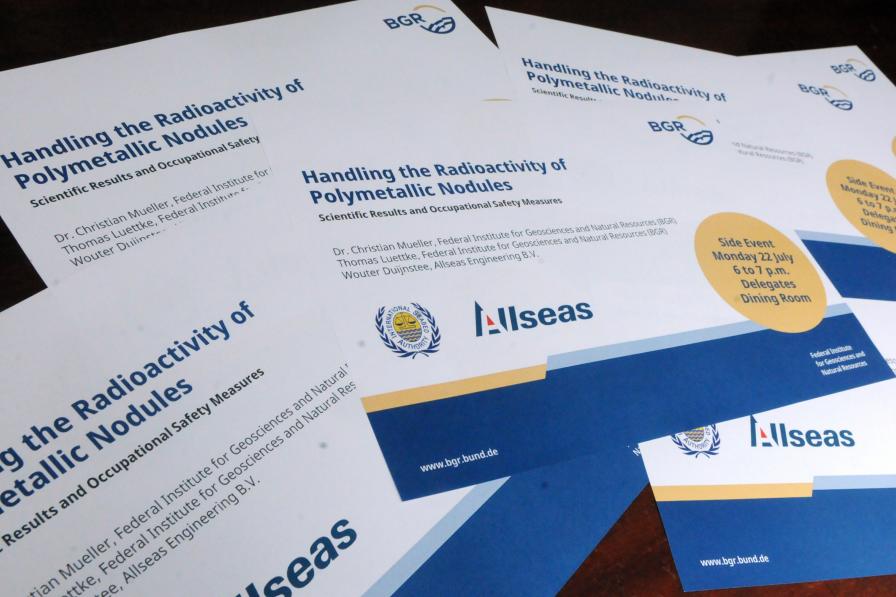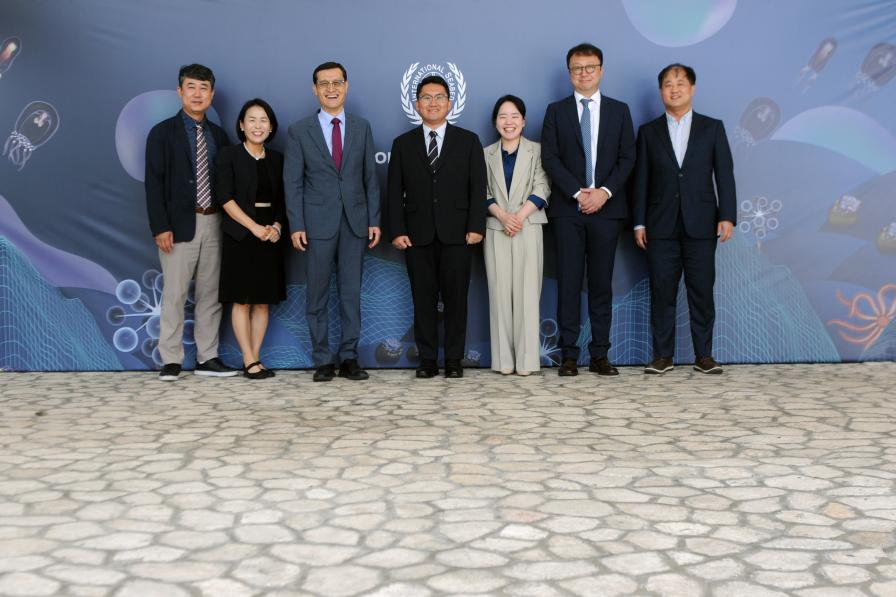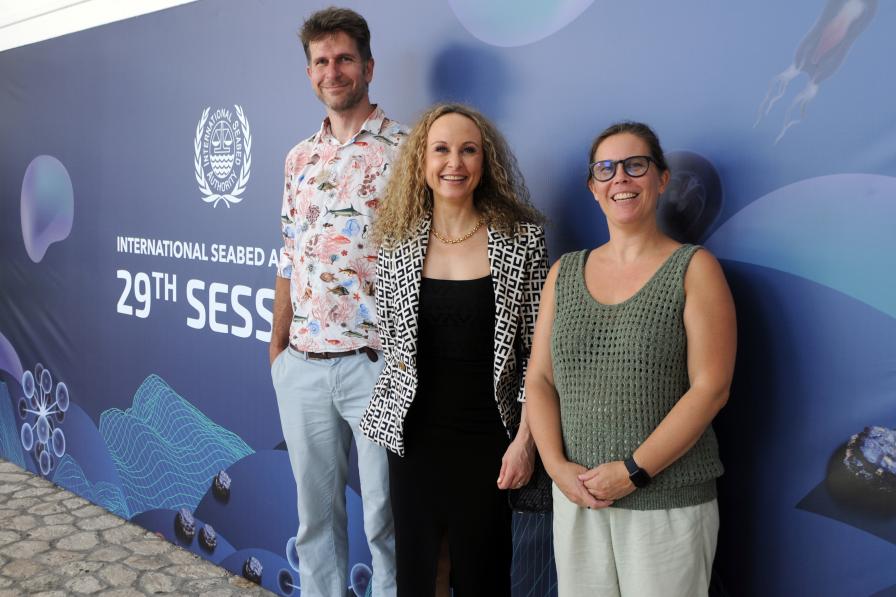Revitalized delegates, following the weekend break, returned to their work on the draft exploitation regulations on deep-sea mining. The morning was devoted to discussions on effective control, which addresses the relationship between a sponsoring state and a non-state contractor. In the afternoon, delegates continued negotiating the draft exploitation regulations, focusing on inspection, compliance, and enforcement.
Council President Olav Myklebust (Norway) opened the session, noting that the report of the Finance Committee meeting was uploaded on the International Seabed Authority (ISA) website on Saturday, 20 July, following relevant requests by delegates on Friday, 19 July. Many delegates suggested devoting additional time to addressing the report prior to the scheduled consideration on Thursday, 25 July. A delegate insisted on continuing with the agreed programme of work, while others requested additional time to consult over any modifications. President Myklebust noted the absence of consensus to amend the programme of work.
Georgina Guillén-Grillo (Costa Rica) and Salvador Telias Vega (Chile) facilitated the discussion on effective control under the informal working group on institutional matters, emphasizing that the UN Convention on the Law of the Sea (UNCLOS) does not expressly define it.
The Co-Facilitators addressed the relationship between effective control and the “responsibility to ensure,” noting they are related but different obligations. They discussed regulatory control vis-à-vis economic control, noting that the ISA approach to effective control to date emphasizes regulatory control over ownership and investment criteria.
They highlighted the risk of sponsoring states of convenience, where enterprises based in developed state members would set up companies in developing state members in the hope of being subjected to less burdensome regulations and controls. They highlighted the issue of reserved areas, which are envisaged to promote the participation of developing country members and prevent monopolization of deep-sea activities.
The Co-Facilitators invited delegates to discuss:
- whether the current interpretation of effective control is fit for the exploitation phase;
- how to avoid monopolization; and
- how to ensure reserved areas benefit developing country members.
In the ensuing discussion, many delegates expressed that effective control needs to be clearly defined and that elements of any draft regulations pertaining to effective control should incorporate relevant UNCLOS articles. Delegates debated the extent to which contractors, sponsoring states, and parent companies should be held liable for any environmental impacts and how liability would be enforced by applicable domestic laws.
Some members supported maintaining a regulatory effective control approach, while others called for a stricter approach for the exploitation phase based on an economic effective control approach. Several welcomed a non-paper from the Netherlands on parent company liability, noting that it provides the basis for a hybrid model regarding effective control.
Most delegates agreed that avoiding monopolization is relevant. A member suggested promoting competence, limiting an entity's number of licenses, and providing technical incentives as options to avoid monopolization.
Some stressed the importance of supporting the full and effective participation of developing countries in the Area. A few members expressed concern whether reserved areas would ensure benefits for developing countries.
Observers noted three crucial issues regarding effective control: liability, enforcement, and the integrity of the ISA. They focused on the importance of holding contractors and parent companies liable, as well as the necessity for states to uphold their own applicable laws. They queried how enforcement will take place for contractors outside of a sponsoring state’s jurisdiction.
President Myklebust invited delegates to revert to negotiating the draft exploitation regulations. Discussions focused on:
- the issue of guidelines (regulation 95);
- the inspection mechanism (regulation 96);
- access to inspections (regulation 96 ter);
- request for inspection in the event of harm to the marine environment (regulation 96 quart);
- appointment and supervision of inspectors (regulation 97);
- inspectors’ functions and responsibilities (regulation 97 bis); and
- inspectors’ powers (regulation 98).
On guidelines, many underscored the need for contractors to be apprised of the guidelines and take them into account, notwithstanding their non-binding nature.
On inspection, some delegates emphasized the need to settle broader questions around the mechanism’s design and overall structure prior to addressing detailed provisions. Discussions focused on:
- whether a compliance committee should be established as an independent subsidiary body under the Council or under the Legal and Technical Commission (LTC);
- modalities for routine, urgent, and unannounced inspections, as well as whether provisions on unannounced inspections should be included;
- whether a request for inspection in the event of harm to the marine environment should be triggered by any harm, serious harm, or the risk of harm, and whether the request can be made only by affected coastal states or by any member state or interested entity, including non-government organizations;
- the process for hiring inspectors either through an open recruitment or state-sponsored nomination process; and
- the scope of inspectors’ powers, where they can discharge these powers, and how such powers may interact with domestic authorities within national jurisdictions.
In the evening, the Federal Institute for Geosciences and Natural Resources, Germany, organized a side event titled “Handling the radioactivity of polymetallic nodules - scientific results and occupational safety measures.”
To receive free coverage of global environmental events delivered to your inbox, subscribe to the ENB Update newsletter.
All ENB photos are free to use with attribution. For the 2nd Part of the 29th Annual Session of the ISA, please use: Photo by IISD/ENB - Diego Noguera
Informal Working Group on Institutional Matters
Council Meeting
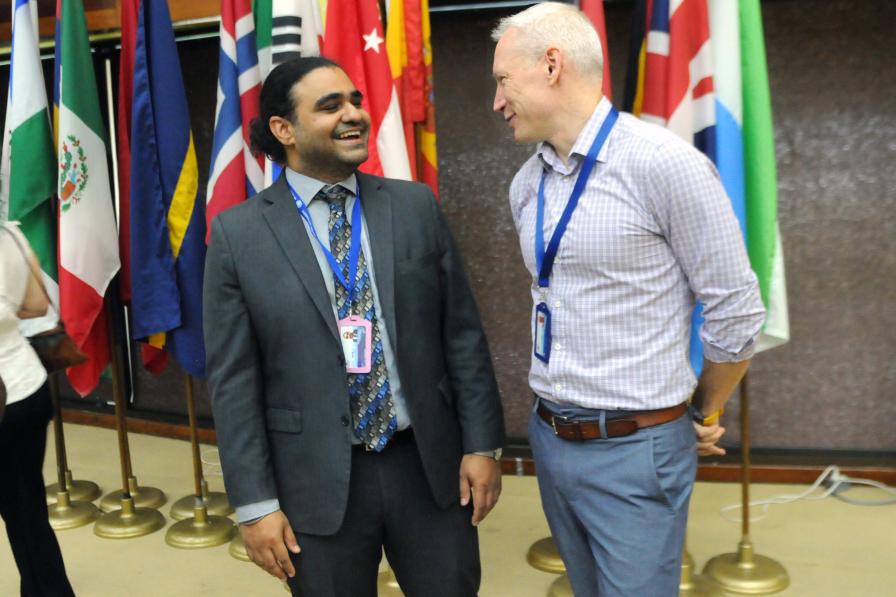
Pradeep Singh, International Union for Conservation of Nature (IUCN), and Corey McLachlan, Nauru Ocean Resource Inc. (NORI)
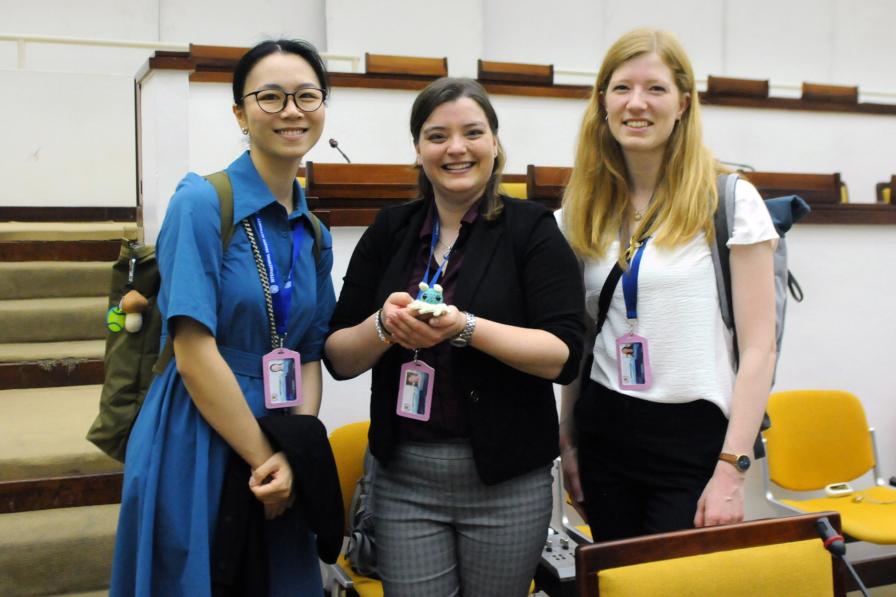
Madeline Warner (center), The Ocean Foundation, with Shuling Chen and Daniela Herrmann, Greenpeace International
